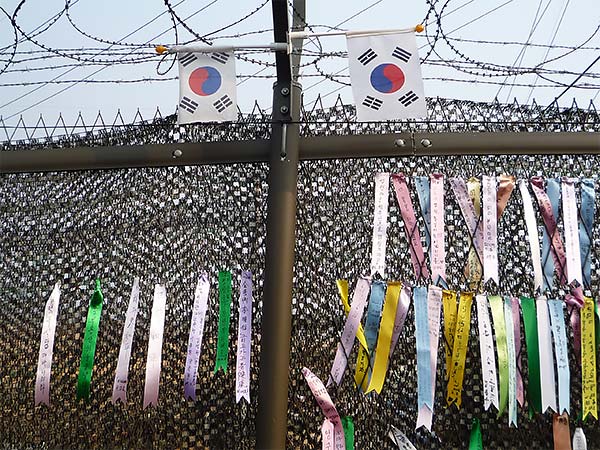Subtotal: $
Checkout-

Flannery O’Connor
-

Covering the Cover: Made Perfect
-

Calling from the Edge
-

The Disability Ratings Game
-

The Way Home
-

The Beginning of Understanding
-

Time for a Story
-

The Island of Misfit Toys
-

A More Christian Approach to Mental Health Challenges
-

Made Perfect
-

Mary’s Song
-

The Art of Disability Parenting
-

When Merit Drives Out Grace
-

Hide and Seek with Providence
-

Unfinished Revolution
-

Falling Down
-

The Hidden Costs of Prenatal Screening
-

The Baby We Kept
-

The World Turned Right-Side Up
-

The Lion’s Mouth
-

How Funerals Differ
-

One Star above All Stars
-

Stranger in a Strange Land
-

Spaces for Every Body
-

Poem: “Consider the Shiver”
-

Poem: “No Omen but Awe”
-

Poem: “So Trued to a Roar”
-

Forum: Letters from Readers
-

Editors’ Picks: “Dirty Work”
-

Editors’ Picks: “Millennial Nuns”
-

Editors’ Picks: “Directorate S”
-

Letter from Brazil

Next Article:
Explore Other Articles:
In July, I visited the demilitarized zone on the east coast of South Korea. It was my first visit as a researcher at the Quincy Institute (QI), a transpartisan Washington think tank dedicated to advancing military restraint and international engagement. I first visited the DMZ in 2009 with a congressional delegation. But this time more than any other I grappled with what it means for the Korean War to technically continue to this day.
I’ve struggled with this question quite a bit during the past two years at QI. While many Americans think of the Korean War as history, it is very much alive and shapes the lived experience of the Korean people.

A section of the DMZ fence separating North and South Korea Photograph by Carlos Affonso (public domain)
I was born in South Korea, and grew up hearing stories about how the war changed the lives of the Korean people for generations. My parents, both of whom were born around the start of the war in 1950, recalled the chaos that uprooted their lives. My father would talk about being so poor that he wore pants made from rice sacks. My mother often spoke about the traumatizing experience of losing land to the South Korean government because her family’s home was near what became the demilitarized zone. She struggled to finish high school while taking care of four siblings with her mother while her father succumbed to alcoholism.
The Korean War continues to have a profound impact on Koreans on both sides of the 38th parallel. They view each other with a near permanent hostility, hardened over the years by occasional skirmishes resulting in military and civilian deaths. Former president and Nobel Peace Prize recipient Kim Dae-jung faced harsh criticism for advocating better relations with North Korea, and current South Korean President Moon Jae-in has been accused of being a communist and a spy for promoting inter-Korean cooperation. Formally ending the Korean War is better than the protracted status quo as a means of making renewed conflict less likely and protecting US interests in the region.
That the war has never ended means living in a constant state of not knowing. Not only are there divided families in North and South Korea, for whom there have been twenty-one reunions, there are also Korean American divided families with direct family members unreachable in North Korea. I have personally met several Korean American divided families, and educated members of Congress about the issue. While public awareness of this humanitarian issue appears to be growing, it is likely going to take a dramatic change in US-North Korea relations for these and other legacy issues of the Korean War to be fully addressed.
In some ways, being Korean American has been an advantage in studying US–Korean Peninsula issues. I recognize the sense of grief and division when I visit the DMZ because I grew up seeing it in my parents’ eyes. I also understand as a Christian that to whom much is given, much is expected. I want to apply these historical and cultural understandings to build bridges between our nations so that a more sensible, less militaristic path can be found.
Working on Korean-peninsula issues can be vexing. Yet it is also something that grounds me and provides a sense of purpose. I hope that more Americans who work on US foreign policy will consider what it means to live in a near-constant state of war.
Jessica J. Lee is a Senior Research Fellow in the East Asia Program at the Quincy Institute. Her research interests include US foreign policy toward the Indo-Pacific region, with an emphasis on alliances and North Korea.
Already a subscriber? Sign in
Try 3 months of unlimited access. Start your FREE TRIAL today. Cancel anytime.









































